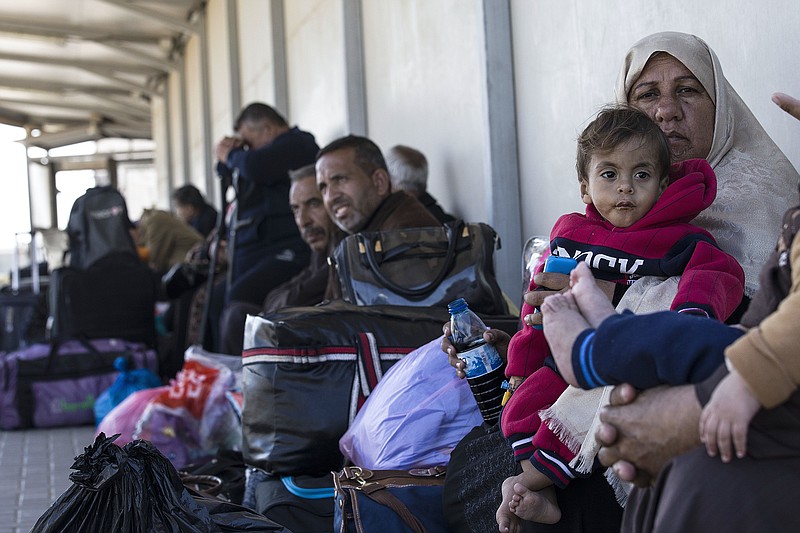GAZA CITY, Gaza Strip (AP) - New Israeli restrictions on Palestinians exiting the blockaded Gaza Strip, including a ban on laptop computers, hard-shell suitcases and even shampoo and toothpaste, have further disrupted travel for the lucky few who are allowed to cross the border into Israel.
Israel is citing unspecified security concerns as the reason for forcing engineers, journalists, business people and human rights workers to leave their electronic work tools behind. For those affected, the restrictions are unfair, inexplicable and mean new headaches in the struggles of daily life in Gaza.
"My work laptop that has all my work files that I can't take back with me is a big problem for me," said Ahmed Abu Shahla, an employee of an intellectual property firm in the United Arab Emirates who was returning to the Gulf after visiting relatives in Gaza.
As he boarded a bus at the border, he was forced to leave his laptop behind. He said he didn't bother to put his projects on flash drives because he feared they would be confiscated.
"My loss is high because you have to move all the data by email or any other means which is almost impossible," he said. "This affects you in all directions, professionally, unfortunately."
The ban, which took effect Aug. 1, applies to all Palestinians who want to travel to Israel, or through Israel to the West Bank and neighboring Jordan. With Israel and Egypt maintaining a tight blockade on Hamas-ruled Gaza, the Erez crossing is virtually the only way out of the territory.
Israel and Egypt imposed the blockade after Hamas won parliamentary elections in 2006 and routed forces loyal to the internationally recognized government of Palestinian President Mahmoud Abbas the following year. Israel, the U.S. and much of the West consider Hamas a terrorist group, and Israel said the blockade is needed to isolate Hamas and prevent it from smuggling in weapons.
The Rafah crossing on the Egyptian border has traditionally been Gaza's main gateway to the outside world. However, Egypt keeps the crossing closed for months at a time. The last time it opened for travelers was in March, and tens of thousands of people are on wait lists to travel once Egypt opens the crossing.
The Egyptian closure has made Israel's Erez crossing vital to Gazans who need to travel abroad for business, medical care, studies or to see relatives.
Yet Israel, accusing Hamas of trying to exploit travelers to carry money or information to its agents abroad, has imposed a series of restrictions in recent years that has limited the flow of people across the border.
Israel allows only small numbers of people in special categories, such as students, aid workers and medical patients, to cross through the border, and all travelers go through a heavily fortified terminal where they pass through scanners, can have their luggage opened and are subject to strip searches. In recent years, Israel also has called in hundreds of people for day-long "interviews" with security agents before granting them travel permits.
Foreigners were exempted from the restrictions.

